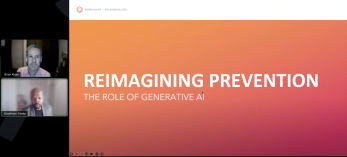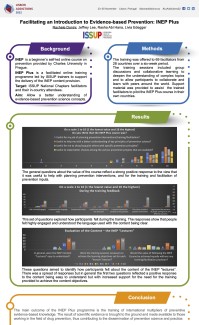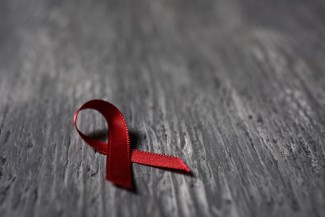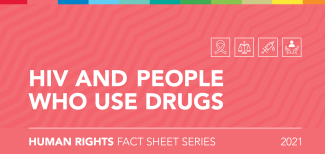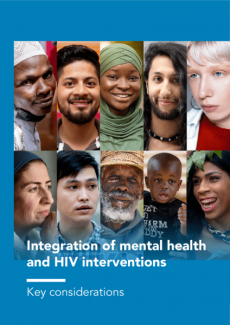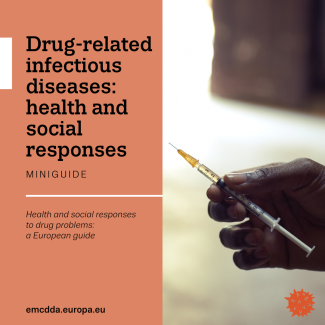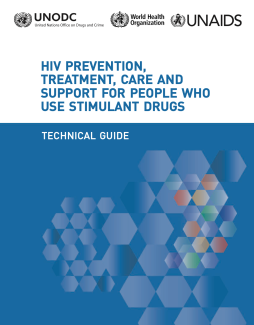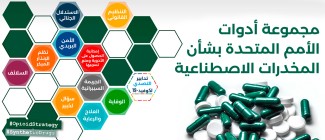
تلاش
ISSUP Oral Presentation for Lisbon Addictions 2022: Facilitating an Introduction to Evidence-based Prevention: INEP Plus
The fourth European Conference on Addictive Behaviours and Dependencies took place in Lisbon from 23-25 November 2022.
Under the overarching theme of Global Addictions, LxAddictions22 showcased cutting-edge research to help characterise...
ISSUP Poster for Lisbon Addictions 2022: Study on substance use and the role of families in Kazakhstan, Pakistan and Ukraine
The fourth European Conference on Addictive Behaviours and Dependencies took place in Lisbon from 23-25 November 2022.
Under the overarching theme of Global Addictions, LxAddictions22 showcased cutting-edge research to help characterise...
رجسٹریشن اوپن: این اے اے ڈی اے سی کی تشخیص، تشخیص، اور مشترکہ طور پر ہونے والی خرابیوں کا علاج اور ایس یو ڈی اسپیشلٹی آن لائن ٹریننگ سیریز
این اے اے ڈی اے سی کی تشخیص، تشخیص اور مشترکہ طور پر پیدا ہونے والے عوارض کا علاج اور ایس یو ڈی اسپیشلٹی آن لائن ٹریننگ سیریز ان پیشہ ور افراد کی مدد کے لئے ڈیزائن کی گئی ہے جو نشے کے شعبے میں مشترکہ طور پر ہونے والی خرابیوں کے بارے میں...
قیادت میں لچک: خود کی دیکھ بھال اور دوسروں کی دیکھ بھال کے لئے کلیدی طرز عمل
اسپیکرز کی کال: 2023 ای سی او ایس او سی پارٹنرشپ فورم میں سائیڈ ایونٹ
وی این جی او سی این وائی این جی او سی اور یو این او ڈی سی سول سوسائٹی یونٹ کے ساتھ مل کر 31 جنوری 2023 کو صبح 8.30 بجے ای سی او ایس او سی پارٹنرشپ فورم 2023 کے حاشیے میں ایک آن لائن سائیڈ ایونٹ کا انعقاد کر رہا ہے۔ اس تقریب کا عنوان ہے: منش...
نوجوان لوگ اور شراب، ہم کیا جانتے ہیں اور ہم اس کے بارے میں کیا کر سکتے ہیں؟
اس ویبینار کی میزبانی ایچ ایس ای ہیلتھ اینڈ ویل بینگ الکوحل پروگرام نے یورپی یونین الکوحل آگاہی ہفتہ کے حصے کے طور پر کی تھی۔
مقررین کا پینل آئرلینڈ میں نوجوانوں اور نوجوانوں میں شراب کے استعمال کے بارے میں اعداد و شمار اور وسیع تر...
HIV and Substance Use: Reading List
World AIDS Day takes place in December each year. This reading list contains a list of research, publications and resources for practitioners relating to HIV/Aids. We also have a network dedicated to HIV and HCV where you can find a...
A human rights approach to integrating HIV and substance misuse services
Integrating HIV-related care with treatment for substance use disorder provides an opportunity to better meet the needs of people living with these conditions. People with substance use disorder are rendered especially vulnerable by...
Prevention and Treatment of HIV Among People Living with Substance Use and/or Mental Disorders
Focus of this guide
People with mental illness and/or SUD are disproportionally affected by HIV. They may participate in behaviours that increase risk for contracting and transmitting HIV, such as sharing injection drug equipment or...
Centre for disease control prevention factsheets: HIV and substance use
Sharing needles, syringes, or other drug injection equipment—for example, cookers—puts people at risk for getting or transmitting HIV and other infections.
In addition to being at risk for HIV and viral hepatitis, people who inject drugs...
ایچ آئی وی اور مادہ کا استعمال
ایچ آئی وی انفو اور این آئی ایچ کے ایڈز ریسرچ آفس کی طرف سے تیار کردہ یہ خلاصہ صفحہ ایچ آئی وی اور مادہ کے استعمال کی تحقیقات کرتا ہے۔
فیکٹ شیٹ مندرجہ ذیل سوالات کو حل کرتی ہے:
- ایچ آئی وی اور مادہ کے استعمال کے درمیان کیا تعلق ہے؟
- مادہ...
منشیات استعمال کرنے والے افراد کے لئے عدم مساوات کا خاتمہ: عالمی ایچ آئی وی ردعمل منشیات کی پالیسی کو کس طرح تبدیل کرسکتا ہے
نارکوٹکس ڈرگز پر 65 ویں کمیشن کے لئے یہ ضمنی تقریب اصل میں 14 مارچ، 2022 کو پیش کی گئی تھی. آئی این پی یو ڈی کے زیر اہتمام منعقد ہونے والے اس پروگرام کو یو این ایڈز، یو این او ڈی سی ایچ آئی وی/ ایڈز سیکشن، نیدرلینڈز اور آسٹریلیا کے میڈیسنز...
HIV and people who use drugs: Factsheet
The 2021-2026 Global AIDS Strategy has bold and critical new targets on realizing human rights, reducing stigma, discrimination and violence and removing harmful punitive laws as a pathway to ending inequalities and ultimately ending AIDS.
...ایچ آئی وی اور ذہنی صحت کی مداخلت کو مربوط کرنے کے لئے اہم غور و خوض
یو این ایڈز اور ورلڈ ہیلتھ آرگنائزیشن (ڈبلیو ایچ او) کی ایک نئی اشاعت ایچ آئی وی اور دیگر کمزور آبادیوں کے ساتھ رہنے والے لوگوں کے لئے ایچ آئی وی اور ذہنی صحت کی خدمات اور دیگر مداخلتوں کو مربوط کرنے کی اہمیت پر زور دیتی ہے، جس میں سماجی...
منشیات سے متعلق متعدی بیماریوں کا جواب: ای ایم سی ڈی ڈی اے منی گائیڈ
منشیات کے انجکشن کے آلات کا اشتراک خون سے پیدا ہونے والے انفیکشن ، جیسے ایچ آئی وی اور ہیپاٹائٹس بی اور سی کو منتقل کرنے اور حاصل کرنے کے خطرے کو بڑھاتا ہے۔ اگرچہ ہیپاٹائٹس سی منشیات (پی ڈبلیو آئی ڈی) انجکشن لگانے والے لوگوں میں خون سے پیدا...
HIV Prevention, Treatment, Care and Support for People Who Use Stimulant Drugs
Since the beginning of the HIV epidemic, the focus on HIV prevention, treatment and care among people who use drugs has concentrated on the needs of people who inject drugs, and mainly on those who inject opioids. However, data show that...
Correlates of treatment engagement and client outcomes: results of a randomised controlled trial of nabiximols for the treatment of cannabis use disorder
Introduction
There is increasing interest and evidence for the use of cannabinoid medications in the treatment of cannabis use disorder, but little examination of the correlates of successful treatment. This paper is a secondary analysis...
Disruptions to U.S. local public health’s role in population-based substance use prevention and response during COVID-19
Background
COVID-19 dramatically limited the scale and scope of local health department (LHD) work, redirecting resources to the response. However, the need for essential public health services—including substance use prevention—was not...
Brief counselling by a doctor can reduce drinking
A new systematic review and meta-analysis has found that alcohol-targeted brief interventions (short, structured, one-to-one conversations about drinking designed to motivate changes in risky behaviour) delivered in doctors’ offices and...
مجموعة أدوات الأمم المتحدة بشأن المخدرات الاصطناعية
تدعم مجموعة أدوات الأمم المتحدة بشأن المخدرات الاصطناعية المجتمع الدولي في تنفيذ تدابير استجابة شاملة لمواجهة مشكلة المخدرات الاصطناعية.
وضعت مجموعة الأدوات استجابة لقراري لجنة المخدرات 8/61 (2018) و4/62 (2019) اللذين دعيا مكتب الأمم...
Share the Knowledge: ISSUP members can post in the Knowledge Share – Sign in or become a member


